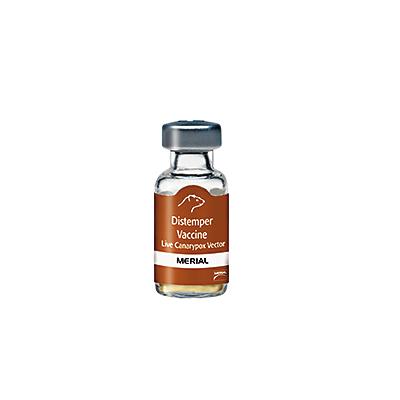Did you know that just like dogs and cats, ferrets require vaccinations to protect them and their families against disease? Currently, there are two vaccines recommended for ferrets: canine distemper and rabies.

Did you know that just like dogs and cats, ferrets require vaccinations to protect them and their families against disease? Currently, there are two vaccines recommended for ferrets: canine distemper and rabies.
Canine Distemper
Canine distemper is a highly virulent, highly contagious, and highly deadly viral infection that is nearly 100% fatal in ferrets. Ferrets can be exposed to the virus through dogs or other mammalian wildlife. Exposure is through direct contact, or contact with other fomites that have encountered the virus (hands, feet, shoes, bowls, etc.) While it may seem like your ferret is at low risk (most ferrets live completely indoors), canine distemper unfortunately remains quite common in wildlife in central Texas. Furthermore, there was a recent outbreak of distemper in ferrets in 2022 that was seen throughout the United States.
Ferrets must be given a very specific vaccine to protect against distemper, Purevax Ferret Distemper vaccine, as the traditional canine vaccines can cause severe disease in ferrets. The Purevax Ferret Distemper vaccine should be given to kits at 8, 11, and 14 weeks of age, then annually. If your ferret doesn’t have any recent history of vaccination, two vaccines given three weeks apart are necessary to get them protected, then once annually.

Rabies
Rabies vaccines are commonly used in companion pet mammals throughout the world. Despite a relatively low incidence of rabies disease (approximately 3-6 people die of rabies in the United States each year), the viral infection remains an important threat. The reason is that by the time a host is feeling sick from the infection, no treatment to date has been effective at curing the disease, which is nearly 100% fatal. Robust use of rabies vaccines in dogs, cats, and ferrets in the United States protects humans and their pets against this deadly disease. In fact, worldwide, rabies still causes around 60,000 human deaths each year.
Vaccine Reactions
Ferrets are known to have anaphylactic vaccine reactions more commonly than dogs and cats. As many as 6% of ferrets can have an adverse vaccine reaction. For this reason, we only vaccinate ferrets with one vaccine at a time, and we keep them in the hospital for 30 minutes after vaccination. Most vaccine reactions occur very quickly, so prompt treatment can be provided if necessary.
Titers
Titers are levels of antibodies in the blood stream that are used to determine how likely the body is to respond appropriately with a strong immune response if exposed to the disease in question. Unfortunately, we don’t have sufficient information to know whether high titer levels will ensure protection against disease. Furthermore, titers are significantly more expensive than re-vaccination, and pose a barrier to care. As a result, titers are not currently the standard recommendation for ferrets. However, if your ferret has a history of vaccine reactions, this test may be considered along with a detailed discussion of the risks/benefits with your veterinarian.
A Final Word
If your ferret has not been to the vet since you bought him/her, it’s important to know they are NOT protected against these deadly diseases. Ferret kits are given one dose of vaccine against distemper, but a single dose has been shown to be ineffective at preventing disease. Ferrets are also sold before they are old enough to receive a rabies vaccine. If your ferret has never been to the vet, consider booking a wellness appointment to receive a thorough physical exam and discuss which vaccines are appropriate with your veterinarian.
References:
American Ferret Association: AFA Ferret (M. putorius furo) Vaccination Policy. (n.d.). https://www.ferret.org/read/vaccinations.html
Greenacre CB. Incidence of adverse events in ferrets vaccinated with distemper or rabies vaccine: 143 cases (1995-2001). J Am Vet Med Assoc. 2003 Sep 1;223(5):663-5. doi: 10.2460/javma.2003.223.663. PMID: 12959385.
